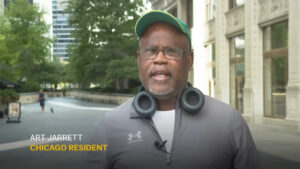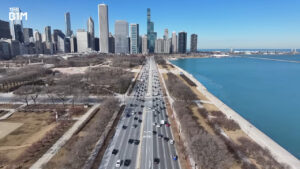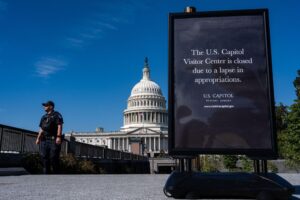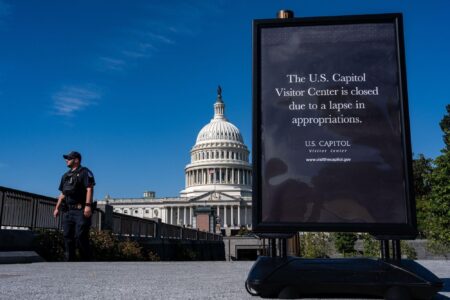The year 2017 was marked by significant moments that shaped pop culture, U.S. politics, and global affairs, leaving an indelible impact on history. From headline-grabbing political shifts and landmark legislative moves in Washington, D.C., to cultural phenomena that captivated audiences worldwide, 2017 captured a transformative period of change and reflection. This article explores the key events of that year, offering a comprehensive overview of the developments that defined 2017 across entertainment, government, and international relations.
Key Pop Culture Moments that Defined 2017 and Their Lasting Impact
2017 was a landmark year in pop culture, marked by moments that rippled far beyond their initial impact. The #MeToo movement exploded into the public consciousness, catalyzing a global conversation about sexual harassment and empowering countless individuals to speak out against abuse. This seismic shift not only redefined accountability in Hollywood and beyond but also sparked widespread policy changes and corporate reevaluations. Meanwhile, the release of “Get Out” shattered genre expectations, blending horror with biting social commentary that resonated deeply in a politically charged climate. Musically, the rise of artists like Cardi B and the viral dominance of ‚ÄúDespacito‚ÄĚ highlighted a growing embrace of diversity and multilingualism, reshaping mainstream tastes and opening doors for global cultural exchange.
Television and streaming further disrupted traditional media landscapes, with series like Stranger Things and The Handmaid’s Tale becoming cultural touchstones that sparked debates on nostalgia, authoritarianism, and gender rights. Social media platforms became battlegrounds for cultural discourse but also breeding grounds for misinformation, signaling a need for digital literacy that remains urgent today. The entertainment industry’s rapid pivot to online content consumption transformed viewing habits permanently, escalating the shift towards binge-watching and on-demand availability. These key moments together encapsulate a year where art, activism, and technology converged to redefine how stories are told and heard worldwide.
Analyzing Major Political Developments in the United States During 2017
2017 marked a transformative year in American politics, shaped by dramatic shifts and controversial moments. The inauguration of Donald J. Trump as the 45th president set the tone for a deeply polarized political climate. Early in his administration, sweeping executive orders challenged existing policies on immigration, healthcare, and environmental regulations, sparking nationwide debates. The introduction of the “Travel Ban” on several predominantly Muslim countries galvanized protests and court battles, reflecting the administration‚Äôs hardline stance on national security and immigration.
Congressional activity also drew significant attention, with efforts to repeal and replace the Affordable Care Act dominating the legislative agenda but ultimately failing to secure enough support. Meanwhile, investigations into alleged Russian interference in the 2016 election intensified, contributing to heightened tensions between the executive branch and other institutions. Below is a summary of key political developments in 2017:
- Executive Orders: Immigration restrictions and deregulation initiatives.
- Healthcare Debates: Attempts to dismantle the ACA caused partisan gridlock.
- Russia Investigation: Probes led by Special Counsel Robert Mueller gained momentum.
- Supreme Court Appointment: Neil Gorsuch’s confirmation shifted the Court’s ideological balance.
| Event | Impact |
|---|---|
| Travel Ban Implementation | Nationwide protests and legal challenges |
| Attempted ACA Repeal | Heightened partisan divides in Congress |
| Russian Election Investigation | Increased scrutiny of administration conduct |
| Gorsuch’s Supreme Court Confirmation | Conservative tilt in judiciary |
Global Events That Shaped the World Stage in 2017
Throughout 2017, several pivotal moments on the global stage defined international relations and political dynamics. From the intensification of North Korea’s nuclear tests, which escalated tensions in the Asia-Pacific, to groundbreaking diplomatic initiatives like the landmark U.S.-Cuba summit talks, the world witnessed significant shifts. The year was also marked by the formal inauguration of President Donald Trump, whose administration implemented sweeping policy changes that reverberated beyond American borders, notably in trade and climate agreements. Meanwhile, major terror attacks across Europe prompted heightened security measures and debates on immigration policy within the European Union.
Significant economic developments also captured global attention. The year saw emerging markets struggle amid fluctuating oil prices and currency instability, while major powers pursued strategic investments in technology and infrastructure. Key global forums such as the G20 summit emphasized cooperation on combating terrorism financing and addressing climate change, setting the stage for future international collaboration. Notable highlights included:
- Escalation of diplomatic dialogues between North Korea and South Korea
- Election outcomes affecting Germany’s coalition government stability
- Historic tension and negotiations surrounding the Iran nuclear deal
- Increasing influence of digital diplomacy and cybersecurity on world politics
| Event | Impact | Region |
|---|---|---|
| North Korea Missile Tests | Heightened regional security concerns | Asia-Pacific |
| Brexit Transition Talks | Economic uncertainty across EU-UK relations | Europe |
| U.S. Withdrawal from Paris Agreement | Global climate policy disruptions | Global |
Lessons Learned From 2017: Insights and Recommendations for Future Policy and Culture
Reflecting on the pivotal moments of 2017, several crucial lessons emerge that can shape future policy and societal culture. One key takeaway is the importance of resilience in democratic institutions. The political turbulence revealed vulnerabilities in governance frameworks, emphasizing the need for transparency, accountability, and robust voter protections to safeguard electoral integrity. Additionally, cultural movements underscored the power of collective voices in challenging systemic inequalities, highlighting that sustained activism coupled with legislative support can drive meaningful change.
Future strategies should focus on fostering inclusive dialogue and embracing diversity as catalysts for progress. Recommendations include:
- Enhancing civic education to build informed and engaged citizenry.
- Promoting media literacy to combat misinformation and encourage critical thinking.
- Supporting equitable economic policies to reduce social disparities exposed during crises.
- Encouraging proactive global collaboration to address transnational challenges effectively.
| Area of Impact | 2017 Highlight | Policy Recommendation |
|---|---|---|
| Politics | Polarization & Political Activism | Strengthen bipartisan cooperation frameworks |
| Culture | Rise of Social Justice Movements | Institutionalize equity & inclusion training |
| Media | Spread of Fake News | Launch nationwide media literacy campaigns |
| Economy | Growing Income Inequality | Implement fair wage and tax reforms |
The Way Forward
As 2017 drew to a close, the year‚Äôs events left an indelible mark on pop culture, U.S. politics, and the global stage. From groundbreaking moments in entertainment to pivotal political developments and significant international shifts, the year encapsulated a period of dynamic change and complexity. Reflecting on these milestones provides valuable insight into the forces that shaped recent history and continue to influence the trajectory of societies worldwide. For a deeper understanding of 2017’s defining events, History.com offers comprehensive coverage and analysis, underscoring the importance of remembering the past as we navigate the present.





